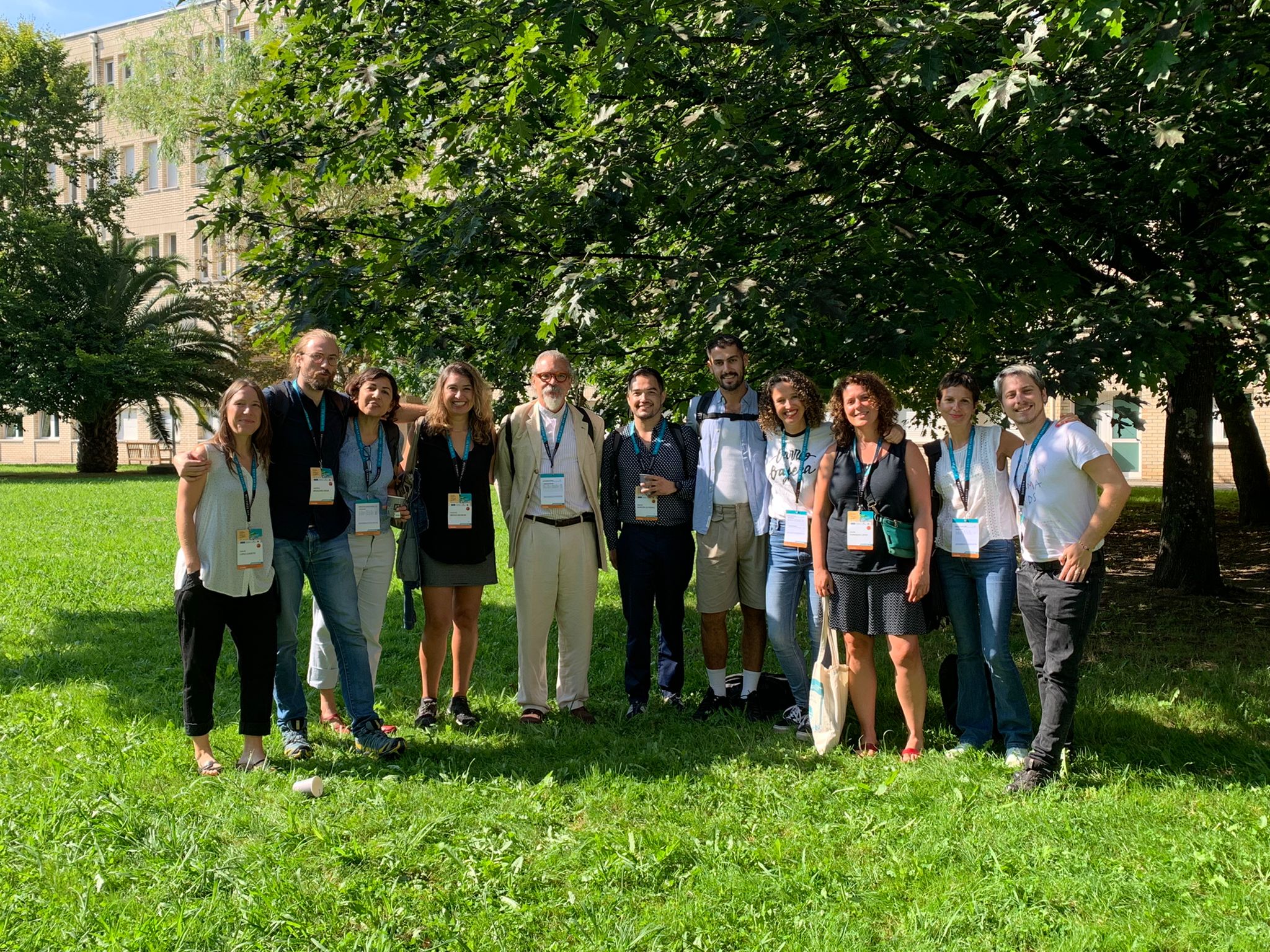The CEEISCAT participates in the Annual Meeting of the Spanish Society of Epidemiology around the "Challenges of the 21st century"
The CEEISCAT participates in the SEE annual congress with an invited talk, 19 oral communications, three panel moderations, a poster and a prize for the best senior communication

One more year, the Spanish Society of Epidemiology (SEE) has organized its annual congress, this year in Donostia (Euskadi), where more than 800 people have participated at the University of the Basque Country/Euskal Herriko Unibersitatea (UPV/EHU). The Center for Epidemiological Studies on Sexually Transmitted Infections and AIDS of Catalonia (CEEISCAT), as a research group of the Germans Trias i Pujol Research Institute (IGTP), presented a total of 19 oral communications in their respective fields of work and moderated two oral communication sessions and presented a poster. In addition, Dr. Jordi Casabona, as the director of the center, was invited to make a presentation on the Monkeypox virus.
The congress was organized under the slogan "Challenges of the 21st century" with the aim of showing the main health problems that affect the population and the importance of the knowledge provided by epidemiology to help control current public health problems and emerging diseases. Thus, there was extensive talk about COVID-19 and Monkeypox, and also HIV, COVID-19, syphilis, chlamydia and other STIs, alcohol, mental health and quality of life, among others topics were discussed.
The director of the CEEISCAT, Dr. Jordi Casabona, chaired in the panel discussion on the epidemiology and prevention of the monkeypox virus, pointing out that the transmission of the current outbreak of the virus is taking place in contexts of sexual relations, either through intercourse with penetration or by direct contact, therefore, it is necessary to consider the virus as a sexually transmitted infection to incorporate it into the portfolio of sexual and reproductive health services and be able to monitor it as such.
In order to specify the recommendations on which interventions to apply to control the virus, and ultimately eliminate it, Dr. Casabona stresses the need for more precise information on the mechanisms and periods of transmission, reinfections, and the effectiveness of the vaccine, among others. For this, it is essential to work together with the LGBTIQ+ community and their organizations, be creative with online prevention strategies and monitor the criteria for prioritizing the vaccine. Currently, transmission has been limited to certain groups with a high exposure group and, far from stigmatizing and achieving the opposite effect, it is important to prioritize these groups, since they are the most vulnerable to the virus.
The annual meeting of the SEE has taken place from August 30th to September 2nd, and the CEEISCAT team began its communications with the participation in a panel on Epidemiological Surveillance of the COVID-19 virus. The factors associated with the prevalence and incidence of SARS-CoV-2 infection in the Catalan educational group (Escoles Sentinella project) were detailed, a reinforced surveillance intervention was presented in primary care patients in the Barcelona health region (Serocap project) and two pilot studies carried out by the CEEISCAT were presented with the aim of measuring the feasibility of applying the self-test as a virus control tool in summer camps and in health and education professionals (Testa't COVID). Also, within a panel dicussion on vaccination, a study on indecision and refusal to be vaccinated by students of legal age and families of underage students in Catalonia (Escoles Sentinella project) was presented.
The CEEISCAT participated in the panel discussion on AIDS and HIV with three oral communications: the first on the prevalence of HIV/STIs and associated factors in sex workers (SexCohort project), the second on the knowledge and intention to use the PrEP (pre-exposure prophylaxis), and the third on changes in clinical and epidemiological characteristics among people over 60 years of age who live with HIV (PISICIS project). Dr. Cristina Agustí (CEEISCAT) moderated the table entitled "HIV, STI and tuberculosis surveillance" where an oral communication was also presented on the effectiveness of the online offer of self-collection of samples for chlamydia.
During the third day of the congress, the CEEISCAT team participated in one of the spontaneous panel discussions on syphilis organized by the CIBERESP DAPET Program, coordinated and moderated by Dr. Casabona with Dr. Fernando Fernández from Valencia; oral communications were presented on the impact of the automation of the mandatory declaration of STIs, syphilis screening in community settings (COBATEST European network and DEVO Catalan network), the prevalence and factors associated with syphilis infection in dating app users, and a case study on the molecular epidemiology of syphilis in Brazil.
The congress organized by the Spanish Epidemiology Society (SEE) aimed to provide knowledge not only about biological factors, but also about mental, educational, economic, social and environmental factors that could contribute to health promotion and disease prevention among the population. Along these lines, the CEEISCAT also contributed to this multidisciplinary perspective with a communication on the use and abuse of alcohol consumption during and after the restrictions produced by the pandemic, another communication on the impact of COVID-19, with a gender perspective, on the emotional well-being of the educational community, a third on sexual violence in adolescents in Central Catalonia, a fourth on emotional distress according to sexual orientation in adolescence and the role of bullying, and a fifth on the challenges and opportunities faced by vulnerable groups, such as sex workers, during the COVID-19 crisis.
The participation of the CEEISCAT in the XL Annual Meeting of the SEE culminated in the Emilio Perea awards for the best senior communications, which was won by Dr. Cristina Agustí for her presentation of the SEROCAP project: reinforced epidemiological surveillance of SARS-CoV-2 infection in patients.

